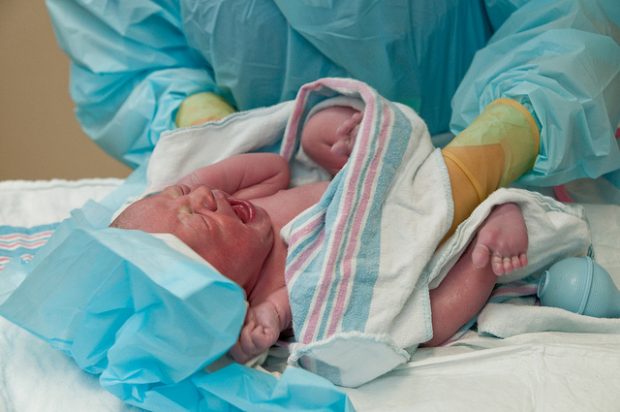Group B Streptococcus (GBS) is an important cause of illness in babies, children and elderly adults. It remains the commonest infection that causes serious illness in newborn babies.

Even though there are recommendations to screen for maternal GBS carriage in other European countries, it is not clear whether a nationally managed approach to standard setting, quality assurance and data collection is in place.
In the UK, screening policy is driven by recommendations from the UK National Screening Committee (UK NSC). The current recommendation is not to offer screening for GBS carriage. This is in great part due to the fact that the screening test at 35 to 37 weeks cannot distinguish between the small number of babies that are affected by early onset GBS and the very much larger number of women who carry the organism with no ill effect.
Policies and guidelines relating to testing and treating women are the responsibility of the Royal College of Obstetricians and Gynaecologists (RCOG), Public Health England and NICE. In the UK, there is a consensus among these national bodies that a universal screening programme is not recommended.
The debate in the UK over the last decade has largely focused on whether the UK should run a screening programme. Efforts to understand how babies come to be infected and then ill, what might be done to prevent or reduce this and how we can improve the treatment of babies when they become sick have remained largely unanswered.
It was therefore with great enthusiasm that a group of experts met in early September, and again in late October, to look at how research might improve understanding and reduce the burden of the disease in newborn babies. The aim of the workshops was to agree workable research questions to improve knowledge.
Jane Plumb, chief executive of Group B Strep Support (GBSS), a charity raising awareness of the disease, summarised the sentiment best at the first meeting by saying that everyone wanted to find the best way to reduce the number of babies and families affected by group B Strep and no one was committed to any particular method of achieving that.
We heard from a large range of people including:
- independent scientists who have carried out research studies looking at which babies are harmed by the disease and how we can identify them
- scientists who are focused on the development of a vaccine to prevent transmission of GBS
- those who work with clinicians and laboratories to find out how many babies are infected and become ill with GBS
- neonatologists and paediatricians who treat the babies that become sick with sepsis, pneumonia and meningitis
- RCOG, which guides obstetricians and midwives when caring for women before the baby is born
- GBSS and the NCT about families who have been affected by the disease and a perspective from women relating to treatment in labour
Each presenter chose their top priority research question and these were discussed to suggest a way forward for future research.
There will be a formal write-up of the discussions and current knowledge later in the year and we will share that through this blog.
UK NSC blog
The UK NSC blog provides up to date news from the UK National Screening Committee. You can register to receive updates direct to your inbox, so there’s no need to keep checking for new articles. If you have any questions about this blog article, or about the work of the UK NSC, please contact the UK NSC helpdesk.
1 comment
Comment by Anne Mackie posted on
It was brought to our attention that some of the wording in the blog implied that current clinical guidelines did not recommend intrapartum antibiotic prophylaxis (IAP) for GBS carriage when identified on vaginal swabs in the current pregnancy. For information on the circumstances in which IAP is recommended readers should refer to the appropriate NICE and RCOG guidance. We apologise for any confusion that may have been caused. The wording in the blog has now been clarified.